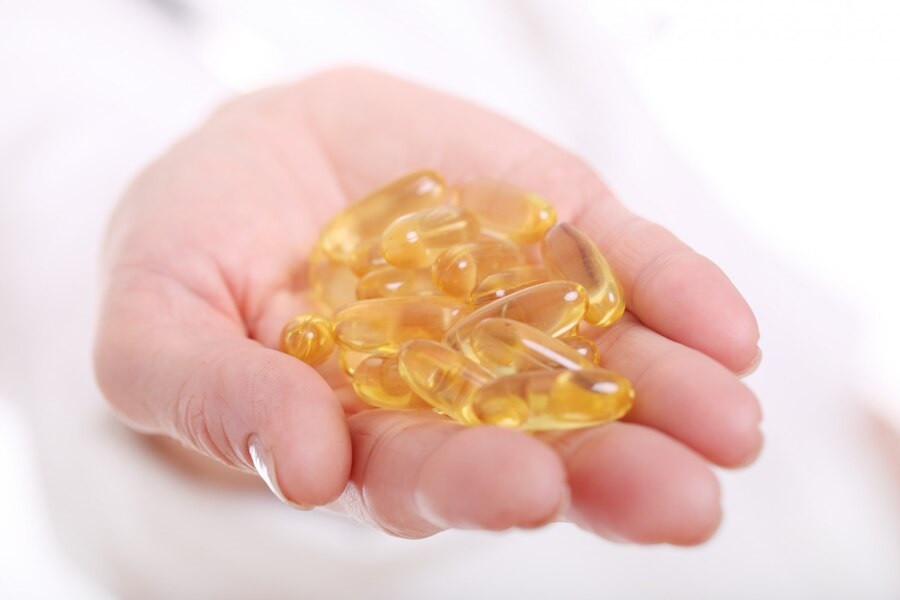Giving children supplements, such as fish oil, is common among many parents to ensure proper growth and development.
Fish oil, usually made from cod liver, is a rich source of important nutrients such as EPA and DHA, as well as omega-3 fatty acids that are important for the health of the brain, eyes, and cardiovascular system. For children, this supplement is available in syrup, which can be mixed with food or drink.
As a responsible parent, ensuring your child receives the best nutrition is crucial. However, before introducing any supplements, such as fish oil, to their diet, it is essential to understand the benefits and risks of regular consumption. By gaining a thorough understanding of the potential impacts, you can make informed decisions that will have a positive impact on your child's health and well-being.
Benefits of regularly consuming fish oil
Regularly providing fish oil supplements can be beneficial for children's health. Some of the benefits associated with consuming fish oil include:
Growth and development
The omega-3 fatty acids found in fish oil, especially EPA (eicosapentaenoic acid) and DHA (docosahexaenoic acid), are beneficial for developing the child's brain and nervous system. Omega-3 fatty acids help build brain structure, improve cognitive function, and support children's vision development.
Help strengthen a child's immune system
Omega-3 fatty acids have anti-inflammatory properties that can help strengthen a child's immune system to fight infection and disease.
Healthy eyes, bones, and skin
Omega-3 fatty acids are very important for eye health, where DHA is the main component of the eye's retina, which is responsible for vision. Adequate DHA intake will help support retina health, maintain good vision, and help prevent eye disorders.
Vitamin D, which is usually added to fish oil supplements, helps the body absorb calcium and other minerals needed for bone growth and maintaining good bone density. Apart from that, omega-3 fatty acids also have anti-inflammatory properties that help keep skin healthy, maintain skin moisture, and reduce inflammation.
Read more: Can Pregnant Women Consumpt Fish Oil?
Improved heart and blood vessel health
Consuming Omega-3 has been linked to improved heart and blood vessel health. This may help to reduce the risk of cardiovascular disease in the future.
The child's mood and behavior
Several studies have found that omega-3 fatty acids can help reduce symptoms of depression, anxiety, and ADHD in children.
Risks of Taking Fish Oil
Side effects from omega-3 supplementation are generally rare and mild. The side effects that may occur include:
- Bad breath
- Bad taste in the mouth
- Headache
- Indigestion
- Stomach ache
- Nauseous
- Diarrhea
- Nosebleed
The fish oil administration should be adjusted to the recommended dosage on the packaging to prevent blood clotting and increase bleeding.
Read more: Vitamin D Is Very Important For Children, This Is The Reason
To avoid the risk of fish oil side effects, here is a guide to giving omega-3 supplements to children:
- 0-12 months 0.5 grams
- 1-3 years 0.7 grams
- 4-8 years 0.9 grams
- Girls 9-13 years 1.0 gram
- Boys 9-13 years 1.2 grams
- Girls 14-18 years 1.1 grams
- Boys 14-18 years 1.6 grams
To ensure you get the right dosage, consult a doctor or nutritionist or read the instructions on the label. You can get a free health consultation with a doctor through the Ai Care application, which is available for download on the App Store or Play Store.
Want to know more information about nutrition, food, and other diet tips? Click here!
- dr. Monica Salim
WebMD (2020). Cod Liver Oil - Uses, Side Effects, and More. Available from: https://www.webmd.com/vitamins/ai/ingredientmono-1040/cod-liver-oil
Ruairi Robertson, PhD (2023). 11 Benefits of Fish Oil. Available from: https://www.healthline.com/nutrition/benefits-of-fish-oil
Keli Hawthorne, MS, RD, LD. Should my children be taking fish oil supplements?. Available from: https://www.babycenter.com/child/food-and-nutrition/should-my-children-be-taking-fish-oil-supplements_10326579
Louisa Richards (2021). Are omega-3s safe for children?. Available from: https://www.medicalnewstoday.com/articles/omega-3-for-kids
Vincent Iannelli, MD (2020). Is Fish Oil Supplementation Right for Kids?. Available from: https://www.verywellfamily.com/is-fish-oil-supplementation-right-for-kids-2634437
Medline Plus (2023). Cod Liver Oil. Available from: https://medlineplus.gov/druginfo/natural/1040.html
Keith Pearson, PhD, RD (2023). How Omega-3 Fish Oil Affects Your Brain and Mental Health. Available from: https://www.healthline.com/nutrition/omega-3-fish-oil-for-brain-health
Rachael Ajmera, MS, RD (2019). Should Kids Take Omega-3 Supplements?. Available from: https://www.healthline.com/nutrition/omega-3-for-kids











